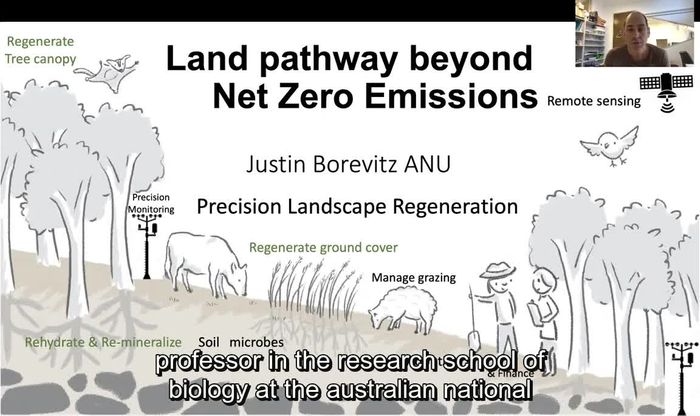Abstract
Agriculture and ecosystems are tipping toward collapse due to land use and climate extremes. Irreversible feedbacks in the land system can lock in food insecurity, biodiversity loss and a hot house world. However regenerating agro-ecosystems is possible and can be profitable.
In this talk, Prof Justin Borevitz will introduce the components of precision landscape regeneration, linking genotype, phenotype and environment, and the outsized role Australia can have in the world. The solutions are to both increase carbon capture via photosynthesis of grasses and trees and to reduce emissions from plant stress (autotrophic respiration) and soils (heterotrophic respiration). Smart farming practices including regenerative agriculture and ecosystem restoration can rebuild agro-ecosystems. This includes methods for boosting soil carbon with microbes and management. Integrating and scaling these land based solutions can build planetary health and resilience.
Video




